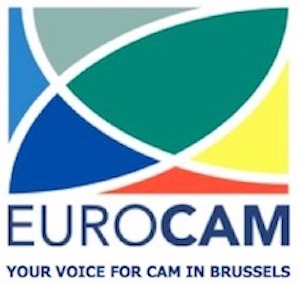CAMbrella A European research network for CAM
CAMbrella was a European research network for complementary and alternative medicine (CAM) that conducted a research programme into the situation of CAM in Europe between 2010 and 2012.
Funded by the European Commission
The group consisted of 16 partner institutions from 12 European countries. The project was funded by the European Commission and tasked with assessing the situation of CAM in Europe and coming forward with recommendations as to its viability and place within the established EU healthcare system.
High demand and widespread use of CAM
The findings of the CAMbrella Project noted on one hand high demand for and widespread use of CAM treatments by European citizens and on the other heterogenic nature of CAM that made it difficult to assess due to the lack of validated data about CAM and because of its inadequate integration into healthcare.
However, CAMbrella Project substantiated the fact that CAM is an established part of healthcare in Europe (as it also is in other continents like Asia, America and Australia). CAMbrella also noted significant scientific scepticism regarding the efficacy of CAM as well as the lack of agreed standards of CAM (e.g. its definition, training and education, legal status and regulatory provisions etc.). CAMbrella highlighted the lack of integration of CAM into national public health systems and the inadequate research facilities available to CAM.
Independent scientific assessment
The CAMbrella Project was realised by an independent, scientific assessment of the status quo of CAM in Europe and outlines findings and recommendations. The "CAMbrella-Roadmap" presents the findings of the eight work packages of this project.
If the recommendations of the CAMbrella Project are to put into operation they must be viewed within the context of public health and research policy in Europe. It is incumbent on the European health policy decision makers - in their responsibility to provide satisfactory and cost-effective healthcare for patients and citizens to take note of the CAMbrella Roadmap (the findings and recommendations of the CAMbrella Project) and consider how to put them into practice.
Individual CAMbrella reports
- Work package 1 - Preliminary CAM terminology and definitions
- Work Package 2 - Legal status and regulation of CAM in Europe
Part I - CAM regulations in the European countries
Part II - Herbal and homeopathic medicinal products
Part III - CAM regulations in EU/EFTA/EEA - Work Package 3 - Citizens’ needs and attitudes towards CAM
- Work Package 4 - CAM use in Europe - The patients’ perspective
Part I: A systematic literature review of CAM prevalence in the EU
Part II: A pilot feasibility study of a questionnaire to determine EU wide CAM use - Work Package 5 - Health Technology Assessment (HTA) and a map of CAM provision in the EU
- Work Package 6 - Global stakeholders view on CAM research and development: Implications for the EU roadmap
- Work Package 7 - General roadmap for future European CAM research
This report was published as a scientific paper: Fischer F, Lewith G, Witt CM, Linde K, Ammon K, Cardini F, Falkenberg T, Fønnebø V, Johannessen H, Reiter B, Uehleke B, Weidenhammer W, Brinkhaus B (2014). A research roadmap for complementary and alternative medicine - what we need to know by 2020. Forschende Komplementärmedizin, 21(2):e1-e16. [PubMed] - Work Package 8 - CAMbrella strategy for dissemination of project findings and future networking.
